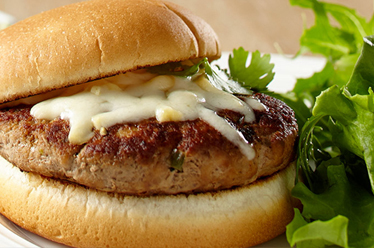Nutrition Basics: What Is Albumin?
Albumin is a type of protein made by your liver that helps keep fluid in your bloodstream and helps carry vitamins and nutrients throughout your body. Amino acids, which are the building blocks of albumin and come from protein, can be lost through dialysis treatments, so it's important to eat enough protein to feel your best.
What does albumin do for my body?
Eating enough protein will help you:
- Stay well and keep you out of the hospital
- Fight off infections
- Prevent muscle loss
- Heal faster after illness or surgery
- Remove fluid more easily during dialysis
WHAT TO REMEMBER:
Proteins can be lost during dialysis. Eating protein at every meal can help keep you feeling your best.
How do I know if I’m eating enough protein?
The amount of albumin in your body will be measured through regular labs. A healthy albumin level is 4.0 or higher. What does low albumin mean? If your albumin level is lower than 4.0, you may not be eating enough protein. There are also other factors that could affect your albumin level, like infection, injury or illness. Signs of low albumin can include high blood sugar, swelling in your legs, feet and hands, weakness or exhaustion, nausea or appetite changes and dry or itchy skin. Work with your care team to ensure your albumin level is healthy.How do I work protein into my meals?
Here are some tips for staying on track with your protein goals:
- Eat before and after every treatment—so you can replace protein that’s lost during dialysis
- Eat protein first at meals—before filling up on other foods
- Try a high-protein supplement—look for protein bars, shakes, powders and liquids to add protein to your diet. Read nutrition labels and talk to your dietitian to choose a supplement with at least 15g of protein, less than 10% daily value of sodium per serving and no added phosphates (phos).
- Eat protein at every meal and for every snack—consider eating 3 high-protein meals and 2 high-protein snacks or eat 6 protein-heavy mini meals throughout the day.
Suggested topics
Nutrition Basics: What is Phosphorus?
Phosphorus is a mineral found in many foods. It works with calcium to build strong, healthy bones. When your kidneys can...
Nutrition Basics: What is Potassium?
Potassium is an important mineral found naturally in many foods. What does potassium do for the body? It helps keep your...
What to Eat and Drink on Peritoneal Dialysis
Choosing home peritoneal dialysis (PD) for treatment at stage 5 chronic kidney disease (CKD) can give you greater flexibility lifestyle in...

